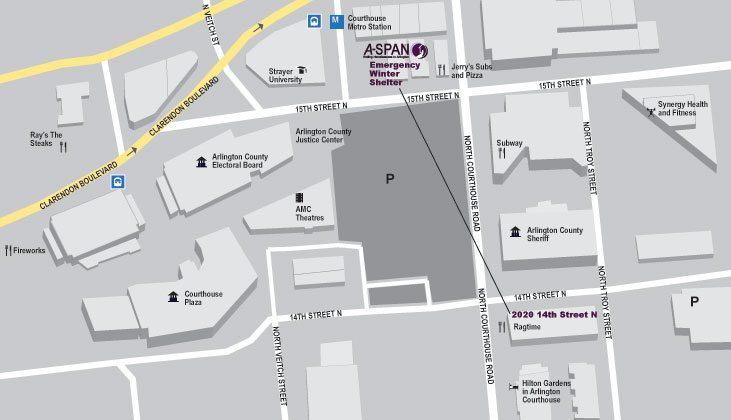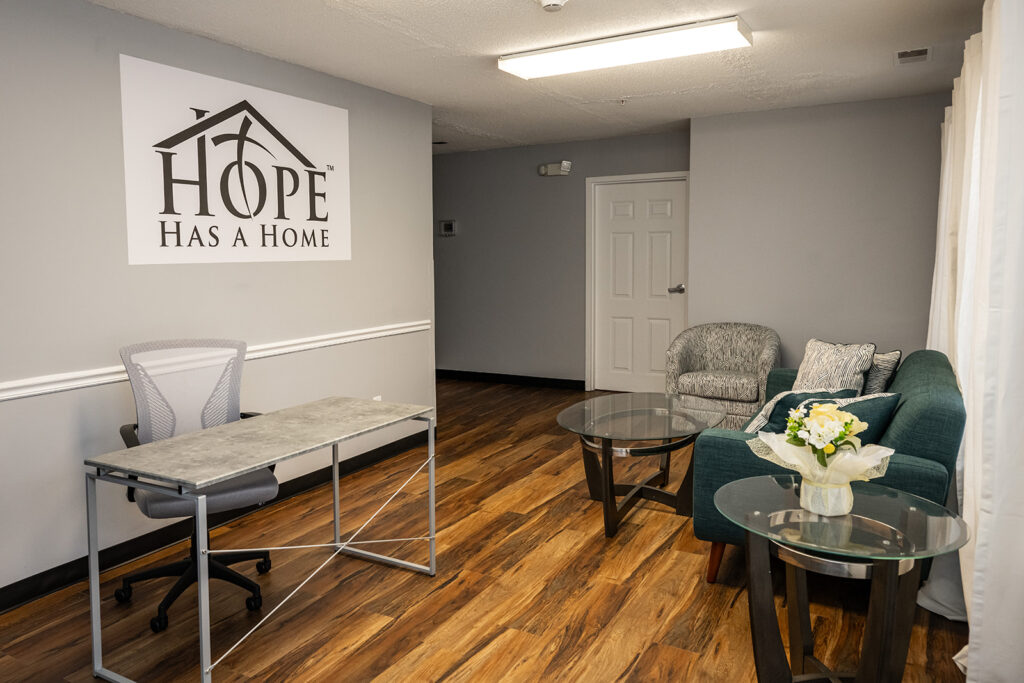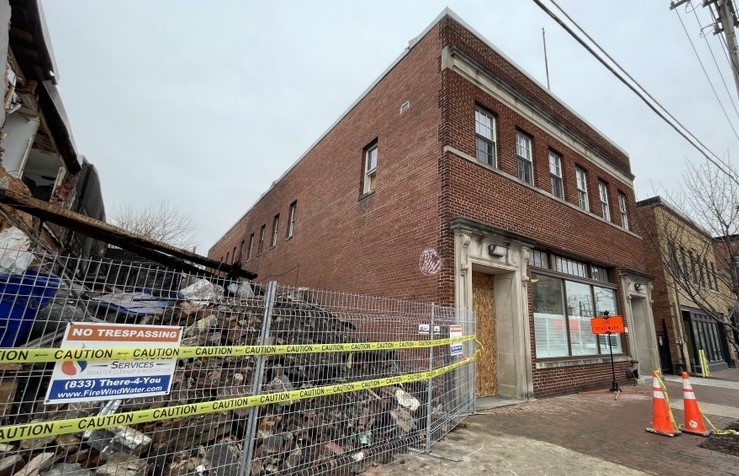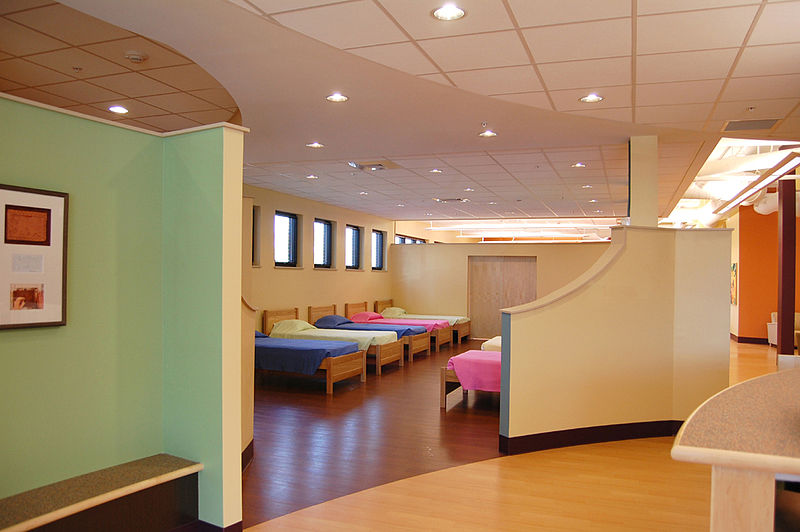Plans for a comprehensive year-round shelter for homeless adults in the heart of downtown Arlington, VA have moved one step closer to fruition.
On March 7, the Arlington County Planning Commission unanimously recommended approval of a special “dormitory” residential use permit for the facility. The special use permit comes up for final approval by the Arlington County Board on March 16.
Plans call for the shelter and service center to offer round-the-clock services from a renovated office building located walking distance from the Courthouse Metro station.
The county board purchased the seven story Thomas Building, 2020 14th Street North late last year for just over $27 million. The county expects to spend $42.6 million renovating the building over the next five years, and to open the shelter, which will occupy the second and third floors by November 1, 2014. In addition, the redeveloped building will include floors of office space for Arlington County government, as well as retail shops and other commercial offices.
The shelter and homeless services facility will replace a winter emergency shelter that has operated down the street for the past 20 years. The Homeless Services Center will be designed to address the needs of single homeless Arlington County residents aged 18 to 75, seeking to move them toward permanent housing and self-sufficiency. The center will have 50 year-round beds and an additional 25 beds during the colder months from November through the end of March. There will be five extra beds for medically fragile residents who need nursing care.
Homeless families with children, as well as those with domestic violence problems, will be directed to other county facilities that are staffed and equipped to deal with their needs.
Advocates for the new facility say that a comprehensive year-round shelter like the one planned offers a “best practice” response to homelessness. They expressed relief that another milestone had been reached in making it a reality.
“It’s been a goal for 20 years,” said Anita Friedman, division chief of the Economic Independence Division of Arlington’s Department of Human Services, which has spearheaded much of the county’s work in finding the site and directing the project.
“It’s the fulfillment of an important piece toward ending homelessness (in Arlington County). It’s a relief,” Friedman said in an interview.
The existing county emergency shelter for single adults, which is located a block and a half away, was never intended or designed to be permanent, officials have said.
But among some neighborhood residents, opposition to the project lingers.
Kenneth Robinson, president of the nearby Woodbury Heights Condominium Association, has been outspoken in his criticism, expressing worries about dangerous criminals and sex offenders being admitted to the new shelter and calling for stepped up security around the building.
Robinson said the county’s new willingness to add a security guard on the premises in the evening between 4 p.m. and midnight, and a surveillance camera outside the building to pan the premises, “shows progress” in helping ensure condominium and apartment dwellers in the neighborhood are able to ‘feel safe in their own houses.’
Yet he and other residents have continued to press for more extensive security measures and to express concerns about the facility’s impact upon their property values.
The nonprofit A-SPAN, or Arlington Street People’s Assistance Network, which has run the nearby emergency shelter for 20 years, will run the new center. A-SPAN Executive Director Kathy Sibert has offered repeated assurances that the new shelter will be a “good neighbor,” just as the old one has been. She and A-SPAN colleague Meg Turcillo said that over two decades, the existing shelter has never been the cause of a serious disturbance.
And they sought to counter fears that homeless people would pose a danger to the neighborhood. Homelessness can strike anyone, said Sibert.
“It happens to so many people. It could be you or me,” she said. “It doesn’t mean you are a criminal; it just means you are without a home.”
She told the story of a 70-year-old man who suffers from dementia who A-SPAN staff had successfully housed on a recent day. The security of housing often helps alleviate other problems homeless people are experiencing, she said.
“When they move in they actually have a home; it really makes a difference,” said Sibert.








